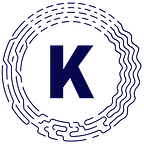Will an ICO Deliver? This One Thing Will Tell You
Author: Jason King
Blockchain-based startups generated over $4 billion in 2017 via Initial Coin Offerings (“ICOs”), more than all funds raised to date for blockchain-based startups via venture capital. And the trend is expected to continue into 2018 and beyond.
Interest and attention follow money, and now investors of all stripes are turning their attention to ICOs, considering whether this alternative form of fundraising might be something they should jump into. And with good reason: Blockchain promises to radically impact not just the financial services and fintech industries, but consumer packaged goods, retail, supply chain, education…virtually every corner of every market on the globe.
“You pick any industry, and this technology holds huge potential to disrupt it, creating a more prosperous world where people get to participate in the value that they create,” Don Tapscott, CEO of the Tapscott Group and co-author of Blockchain Revolution, told McKinsey.
Ready to investigate the world of alternative funding and cryptotechnology? Because the ICO market is largely unregulated, and because most ICOs are launched based on a technology white paper alone, you’re entering buyer beware territory. In this article, I’ll discuss one of the most important elements of a successful emerging technology ICO: its team, including its founders, its advisors, and its employees.
I would argue that the “who” behind a startup is the most important element you must consider, so you can back tokens that will pay off, not peter out. Investor Lauren Stephanian agrees. “The team is one of the most important criteria for any investor when looking at a startup,” she writes.
The team behind a blockchain startup is especially important for the very simple reason that there are so few blockchain experts out there. After all, Bitcoin has been around for less than a decade. And while I don’t agree with some estimates that put the number of crypto and blockchain engineers as low as 5000 globally, there is a severe shortage in the supply of qualified developers.
Here’s how to tell if an ICO has the tech backing to deliver on its promises:
1.Who’s the founding team? What have they done before? Where have they worked? What projects have they worked on, and what was the result? What kind of training do they have? “While many will tell you that past performance doesn’t indicate future success it certainly helps to have the experience. And while it’s not necessary for a founder to have received an Ivy-League degree, as an investor, you want to feel comfortable that the founders are well-educated and are capable of running a business in a structured way,” says Stephanian.
“Check out the profiles of the founding team to see if they have the balance between technical and business expertise. Some teams may be comprised exclusively of marketers, which might be a problem when it comes to the actual development of the product,” advises Nikolai Kuznetsov of TNW.
2. Who are the advisors? The advisors listed on the ICO site should be more than a who’s who in the industry. Having “big names” is great, but it’s not enough. What advantages, skills, passions do they provide? What strategic benefit such as expertise or connections do they offer?
Scoring some big names can help lend an air of authority and viability and can provide a great validation for a new idea. Experts often have their pick of projects and will want to associate with those startups they’re excited about or where they see concrete market value.
3. Who are the developers? As I mentioned above, there’s a severe shortage of qualified, experienced blockchain engineers. Many an ICO will come to a grinding halt if they’re not thinking ahead to where they’re going to find the skilled developers to make their plans a reality. With 14 open positions for every blockchain developer, a forward-thinking startup will have already thought through where they’re going to locate — or how they’re going to train — their employees.
The knowledge and skills behind an ICO are almost more important than the idea itself. Because if you don’t have the people to do the work, the project will, quite simply, die.
***
Jason King is a Humanitarian Hacker, feeding the hungry as the Executive Director of Unsung.org. Known for running across the country to raise bitcoin for the homeless in 2014, King is a long-standing member of the crypto community and continues to solve to the sector’s most pressing problems as Co-Founder of Kingsland University — School of Blockchain, the world’s first university-accredited blockchain training program. Find out more about Kingsland’s leading-edge education at KingslandUniversity.com
